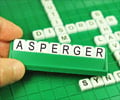National Institutes of Health (NIH) researchers are suggesting that a mild electrical current may help in the rehabilitation of those who have suffered traumatic brain injury, stroke, and other conditions. The suggestions are substantiated with results of a study by the NIH.
Revealing the observations made during the study in the Proceedings of the National Academy of Sciences, the researchers said that people who had received a mild electrical current to a motor control area of the brain were significantly better able to learn and perform a complex motor task than those in control groups.Motor skills, which are used for activities from typing and driving, to sports, require practice and learning over a prolonged period of time.
During practice, the brain encodes information about how to perform the task, but even during periods of rest, the brain is still at work strengthening the memory of doing the task. This process is known as consolidation.
Working in collaboration with scientists from Columbia University in New York City and Johns Hopkins University in Baltimore, the research team from NIH’s National Institute of Neurological Disorders and Stroke (NINDS) presented the study subjects with a novel and challenging motor task, which involved squeezing a "joy stick" to play a targeting game on a computer monitor, which they practiced over five consecutive days.
One group received 20 minutes of transcranial direct current stimulation (tDCS) while practising, but the other group received only a 30 second "sham" stimulation.
The stimulation process involved mild electrical stimulation applied through surface electrodes on the head, and worked by modulating the activity of cells in the brain’s outermost layers.
Advertisement
He and his colleagues observed that over the five-day training period, the skill of the tDCS group improved significantly more than those of the control group, apparently through an effect on consolidation.
Advertisement
Source-ANI
TAN/M














